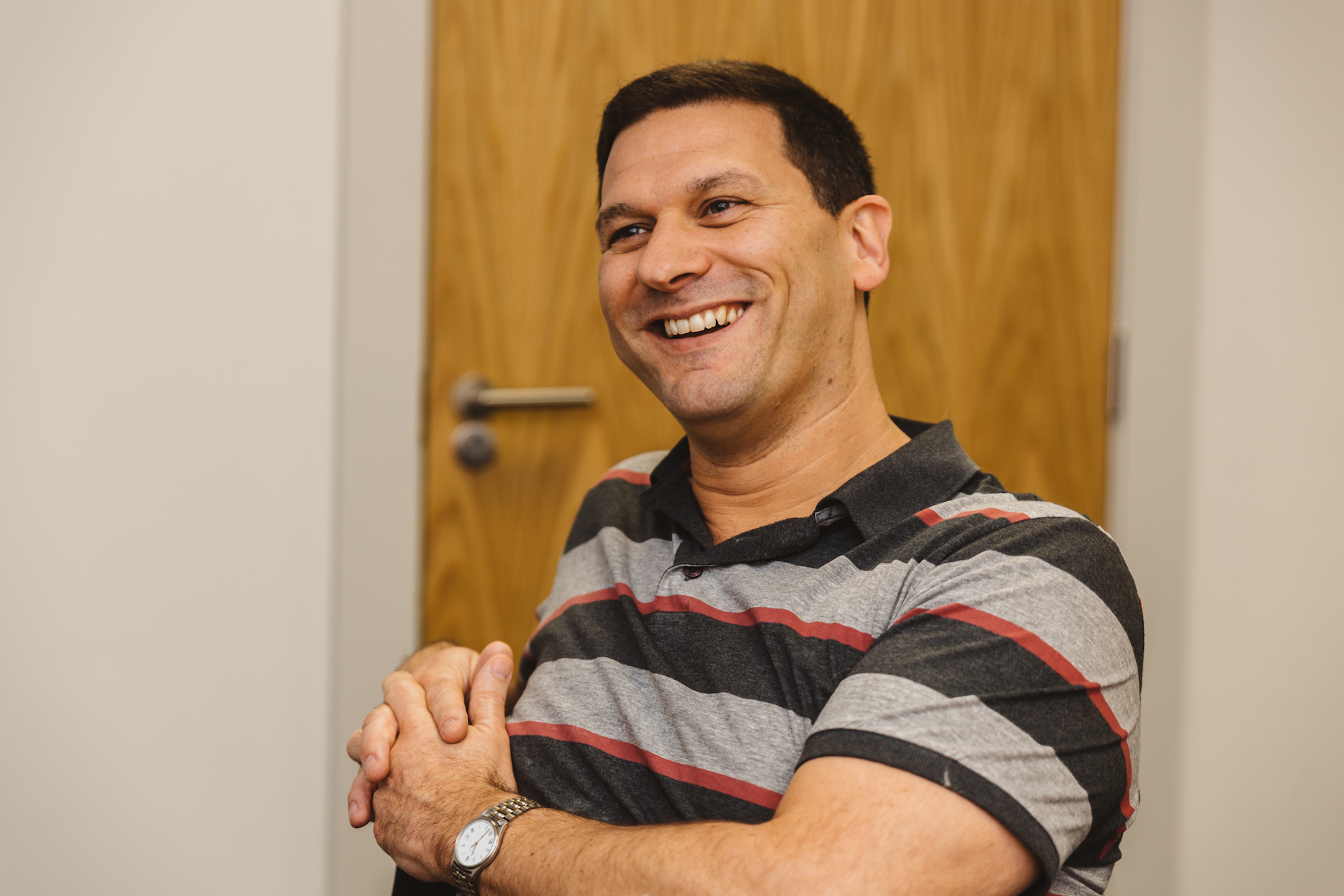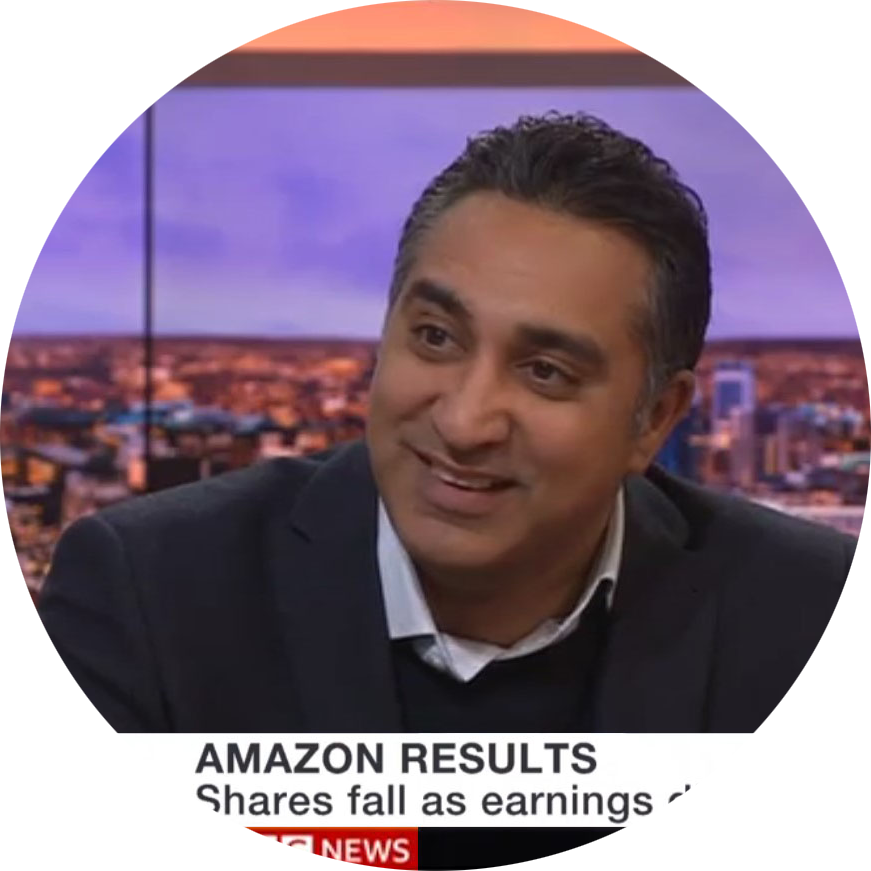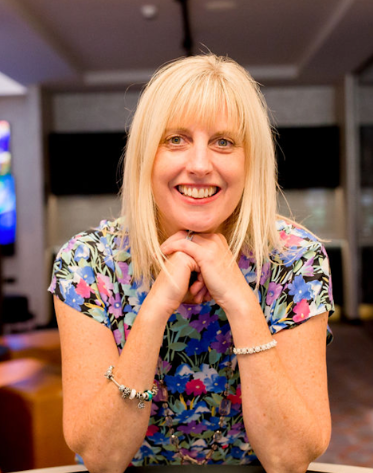Andrew Miller is the founder of Business Enjoyment. A business coach, multiple author, and TEDx Speaker, Andrew has significant experience in both running businesses and helping people with deep-seated beliefs and emotional hangups. Most business gurus focus on building 6 or 7 figure businesses, possibly at the expense of something else. Andrew works with business owners to help them be successful and actually enjoy the journey at the same time. In fact, he wants you to enjoy your business so much, it makes your bits tingle.
If your business could have a mascot, what would it be and why?
Arguably, it already has one. If we were to jump on Zoom you would see behind me, a plush toy version of this emoji – ?. My company is Business Enjoyment and it’s that sentiment that the physical emoji represents.
What strategies do you employ to maintain a healthy work-life balance while running your own business?
Maintaining a healthy work-life balance while running my own business has always been a priority for me, and I’ve found a few strategies that really help me stay on track.
First off, I start my mornings with a couple of cups of coffee, but after that, it’s all water for the rest of the day. Staying hydrated helps me keep my energy up, especially during the busier parts of the day. I also make sure to schedule time for fitness—I’ve pre-booked appointments with a personal trainer and attend yoga classes regularly. This not only keeps me active but also gives me a chance to unwind and clear my mind.
During my work hours, I try to stay active as well. For example, I stand up for all of my Zoom meetings. It keeps me alert and gives me a little boost compared to sitting all day. Speaking of meetings, I’m pretty strict about my availability: no one can schedule calls with me outside of 9 am to 5 pm. If a meeting needs to happen outside those hours, it has to be for a really good reason. The same goes for my work schedule—I rarely work beyond those hours, and I always make sure to take a full hour for lunch to recharge.
Planning is also key for me. I plan my work weeks in advance so I know what deadlines are coming up and can make sure I get the important stuff done without any last-minute rush. And I’m very mindful of my ‘to-do list’—everything on it is there because I chose to put it there. This means that I’m in control of what I do or don’t do, which is a huge relief when managing my time.
If things change—for example, if I’m feeling under the weather or just drained—I don’t hesitate to adjust my schedule. I have no problem pushing things back and taking time for myself when I need it.
In short, I don’t put myself under unnecessary pressure. It’s all about balance, and these little habits help me maintain it while keeping my business running smoothly.
When faced with unexpected detours on your business path, how do you pivot with grace and resilience, showing fellow women entrepreneurs the way forward?
Nothing ever goes to plan and when things do go South, I’ve learned that flexibility is key. I try not to get too attached to any particular plan or method. If something isn’t working, I’m always ready to let it go and move on to something else. This mindset has helped me navigate plenty of changes over the years, and it’s why I believe in constantly reassessing and innovating.
A big example of this was during the Covid lockdowns. Like many others, I had to pivot everything about how I ran my business. Rather than feeling overwhelmed, I chose to see it as an interesting and even exciting opportunity. I focused on figuring out what kind of support and help people would need in that new reality, and then I came up with solutions that I could offer. It wasn’t just about changing what I was doing, but also about finding new ways to deliver those services.
My background as an insolvency practitioner definitely helped with this. In that role, I was constantly running businesses under extreme and uncertain conditions, where things changed daily. It taught me how to think quickly and adjust my actions on the fly.
Above all, I always keep the bigger picture in mind. I know what I want to achieve, but I’m not fixated on how I get there. This perspective helps me stay adaptable, making it easier to navigate whatever twists and turns come my way.
How do you measure the success of your business beyond financial metrics, such as customer satisfaction or community engagement?
My personal mission and the underlying purpose of my company is to change the way that we measure success in business and for it to be about more than just money.
Essentially, enjoyment is the key measure. If I’m enjoying what I’m doing, then all is good. To be clear, for me ‘enjoyment’ is not simply the hedonic concept of having a good time. It’s a combination of doing things without stress; focusing on the things I’m good at; and making a difference to others. That sense of meaning and purpose is the critical step in Business Enjoyment.
In business terms, we can’t really use enjoyment as a direct measure. I have broken it down into four key areas to focus on:
Quantity – the usual financial measures
Quality – as well as the quality of the product or service, it’s also important to factor in things such as the working environment and the quality of the systems and processes
Trust – as well as my clients, do my suppliers, colleagues, and anyone I interact with have trust in me and the brand
Good – obviously I want to help my clients, but I also need to be mindful of all the companies that supply things to me and the local and global communities. For example, the companies that provide my energy, internet, financial products etc – am I happy with how ethical they are?
A lot of these things can be reviewed internally. Where it comes to external input, then most of that comes from me having conversations. I do sometimes use questionnaires but mainly it’s by asking.
Can you share a memorable moment where you witnessed significant growth or transformation in your business, illustrating the impact of your services/products?
In 2012, I wrote my first book entitled ‘Hope Won’t Pay the Wages’. It was essentially a self-help book for business owners that were going through insolvency or extreme financial difficulty, based on interviews with people that had been through it and blended with my own experiences of working in that environment.
Whilst it had been well received at the time, it ultimately became a point of pride rather than the world changer I had hoped it might be.
Fast forward to 2020 and suddenly the whole world is struggling with the financial implications of Covid and lockdown. Naturally, I was starting to help people more in these sort of areas.
Toward the end of the year, I submitted my book for an award and, even though it was 8 years old, it was awarded “Editor’s Choice – Top Three Books of 2020′ by Business Game Changer Magazine.
On the back of this award, interest increased and as well as selling more books in the next few months than its entire lifetime to that point, I was also invited to numerous speaking and training events.
For example, a particular financial lender was looking to upskill their case managers in anticipation of the expected financial crises and get them ready for the increase in insolvencies. In addition to the practical elements, they were keen to make sure they could see things from the director’s point of view and give them appropriate support.
Along with a firm of accountants and lawyers, I visited their Manchester, Birmingham, and London offices to provide insights into how insolvency impacts directors personally and how best to work with them.
It just goes to show that, whilst not everything works straight away, that doesn’t mean it’s wrong. It may just need to find its right time.
What role do you believe mentorship plays in the success of small businesses, and how have mentors influenced your own entrepreneurial journey?
I believe mentorship is a crucial part of the success of small businesses. Having someone to guide you—whether it’s through sharing their own experiences, offering advice, or simply being a sounding board—can make a huge difference. It helps you avoid common pitfalls, and it also provides a different perspective when you’re too close to a situation to see it clearly.
Mentorship is especially valuable because small business owners often wear many hats and can feel isolated in their roles. A mentor can bring fresh insights and help you think through challenges, making it easier to adapt and make better decisions. This guidance is important not just in the early days of a business, but throughout its entire journey, especially when you face unfamiliar situations or need to pivot quickly.
Personally, I’ve found that mentors can be a great source of encouragement too. They remind you that setbacks are a normal part of the process, and they help you stay focused on your long-term goals. Sometimes, just knowing that someone has your back and believes in your vision can be the push you need to keep going, especially when things get tough.
Ultimately, mentorship isn’t just about learning—it’s about having the right support to grow and adapt as a business owner. It can make all the difference in helping a small business thrive in the long run.
What’s your work all about, and how does it make a difference in the world?
Through working with all types of business owners – from those who had lost everything through to multi-millionaires, two key things stood out.
Business owners have an incredibly strong emotional connection with their business.









